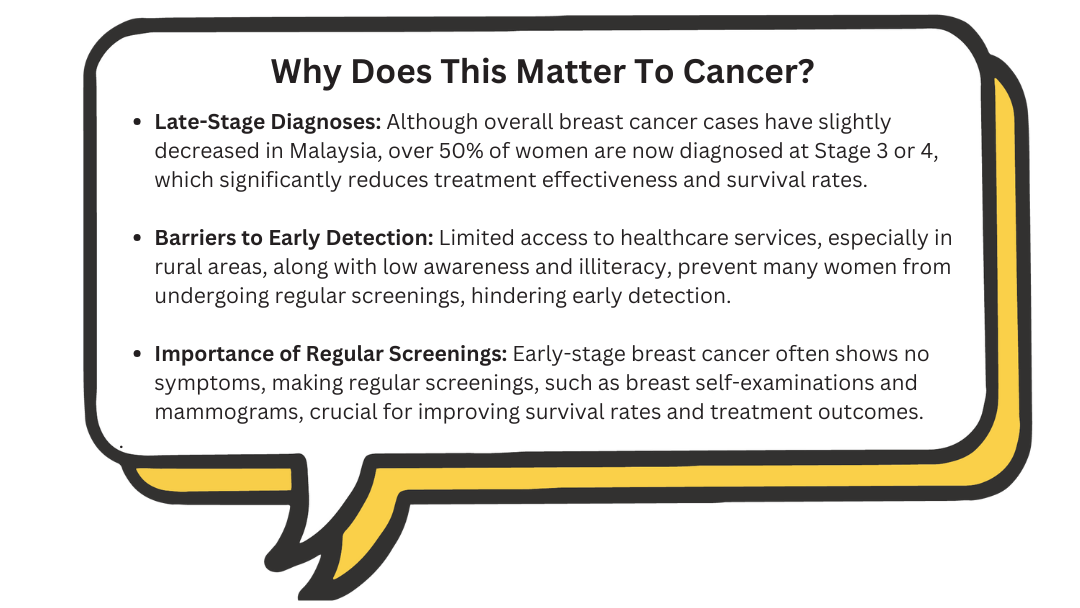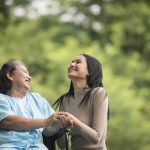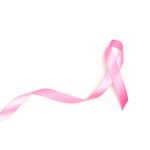A number of women are being diagnosed at Stage 3 or 4 of breast cancer, while the number of cases in Malaysia have seen a slight decline in recent years. This has also led to a significant reduce in effectiveness of treatment and lower survival rates.
According to the latest data from the Malaysia National Cancer Registry Report (2017–2021), overall breast cancer cases have decreased by 1.4% compared to the previous report (2012–2016). However, more than half of women diagnosed with breast cancer in Malaysia—50.5%—are now identified at the later, more dangerous stages of the disease. This marks a concerning rise from 47.9% in the previous period.
Experts say that many women are still not undergoing regular screenings, primarily due to limited access to healthcare services, particularly in rural areas. A study conducted in the rural Segamat district of Johor highlighted that long travel distances to health clinics pose a significant barrier to screening, further complicating efforts to detect the disease early. Additionally, a lack of awareness and understanding about cancer and screenings exacerbates the issue. In some rural areas, illiteracy rates prevent women from accessing written educational materials about cancer prevention and screening.
Early-stage breast cancer often presents no obvious symptoms, underscoring the importance of regular screenings. One of the most accessible methods is breast self-examination (BSE), recommended for women aged 18 and older. Regular mammograms, which are crucial for early detection, are also advised, particularly for women aged 40 and above.
While the decrease in overall breast cancer cases is a positive development, the rising number of late-stage diagnoses presents a growing concern. Early detection remains vital to improving survival rates and treatment outcomes. With timely screenings, many lives could be saved, and the burden of breast cancer in Malaysia could be significantly reduced.






